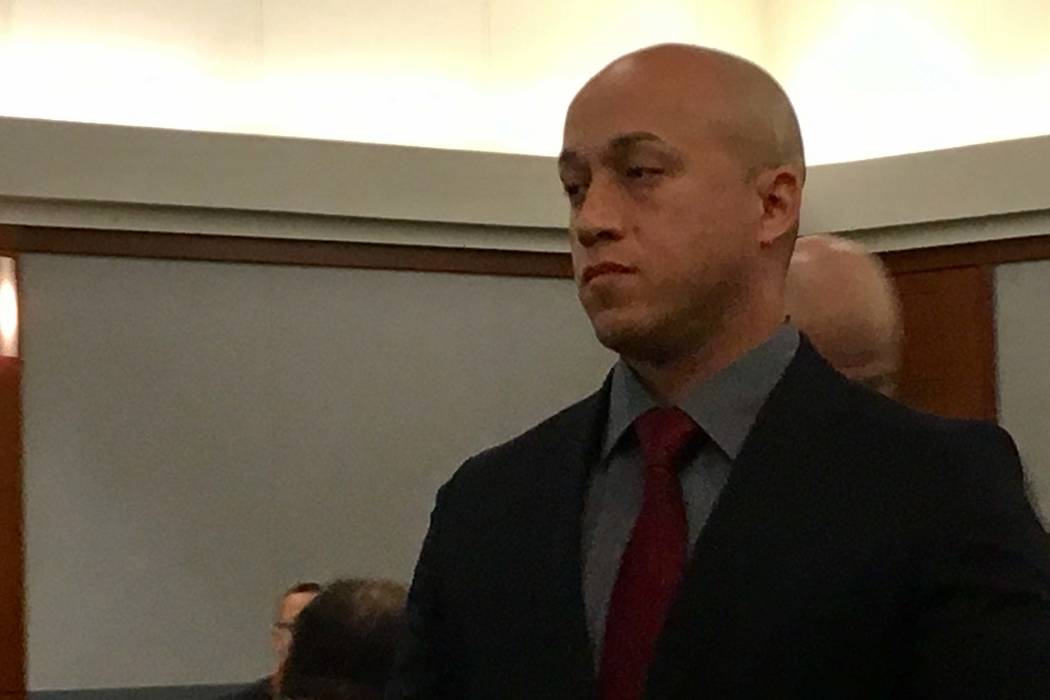Justice: No indictment for officer involved in man’s death on Las Vegas Strip






The conventional wisdom held that former Metropolitican Police Department officer Kenneth Lopera was obviously guilty in the death of Tashii Brown. But a grand jury found otherwise, deciding last week not to charge Lopera with a crime. There’s plenty of evidence it was the right decision.
On May 14, 2017, Brown approached Lopera and his partner inside The Venetian. Brown acted oddly and then ran into an area that was off-limits to the public. Lopera pursued him, ending up outside. He thought Brown was going to carjack a truck, so Lopera attempted to detain him.
As Brown tried to get away, Lopera shocked him with a stun gun. In the course of three minutes, Lopera used the device seven times, hit Brown in the head and used a neck restraint that caused his death. The coroner also found Brown was on methamphetamine and that meth intoxication and an enlarged heart were “other significant conditions” in the death.
Brown’s death was tragic, and his actions didn’t warrant the unfortunate outcome. But that doesn’t mean Lopera was guilty of involuntary manslaughter.
Start with the oft-repeated assertion that Brown wouldn’t have been charged with a crime had he survived. Really? He trespassed, was high on drugs and disobeyed the commands of a police officer who had reasonable suspicion to detain him. Come on. Wondering why Lopera went after Brown in the first place? Imagine what happens if Lopera doesn’t pursue him and Brown assaults someone in the alley after acting suspiciously right in front of the police.
Somehow, the arrest report never mentioned that Brown was on meth, even though Clark County Coroner John Fudenberg said that made “the odds of death greater.” He also said that had Brown “died without the chokehold, it would have all the components of an ‘excited delirium’ death.” The public may not have heard much about meth, but Lopera’s lawyer made sure the grand jury did. That’s one reason cases are tried in actual courtrooms, not the court of public opinion.
Lopera did violate Metro policy by using his stun gun seven times. The arrest report chided him for allowing Brown only a few seconds between shocks. That sounds bad, and if Brown had been obeying Lopera’s commands, it would have been devastating evidence. But watch the body camera. Brown keeps trying to sit up or turn over, despite Lopera screaming at him to “get on your stomach.” In response, Brown does say, “I will,” but that’s a lot less convincing when you see him saying it while rolling off his stomach.
Ironically, Lopera got in trouble for using a nonlethal alternative to his firearm. After three rounds of the stun gun, policy requires Metro officers to use “another force option.” Anyone think the ACLU would have praised Lopera for dropping the stun gun and pulling out his pistol?
Venetian security guards eventually came up to help Lopera, but Brown continued to resist. Lopera then put Brown in a neck restraint. The police report says Lopera held Brown in a chokehold for 1 minute and 14 seconds.
Again, that sounds bad — until you go to the tape. Just 15 seconds into the hold, Lopera is asking if Brown is out. After 30 seconds, you can see Lopera loosen his grip on Brown.
Given these factors, the grand jury’s decision makes sense.
Victor Joecks’ column appears in the Opinion section each Sunday, Wednesday and Friday. Listen to him discuss his columns each Monday at 9 a.m. with Kevin Wall on 790 Talk Now. Contact him at vjoecks@reviewjournal.com or 702-383-4698. Follow @victorjoecks on Twitter.



















